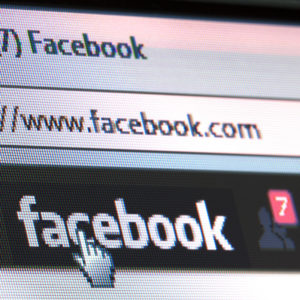A growing list of Washington players on the left and right want a government-regulated Facebook, including congressional Democrats, former White House adviser Steve Bannon, and now a well-known scholar from a prominent, Google-funded liberal think tank, recently ousted by the search giant for criticizing its monopoly practices.
Barry Lynn of the Open Markets Institute, a think tank with a reputation for scrutinizing political and economic monopolies, said Monday “Facebook’s pledge to ensure the transparency of political advertising must be codified by law and overseen by elected officials.”
The Open Markets Institute spun off from the Google-backed New America Foundation in August. The decision came after Lynn, the group’s executive director, praised the European Union’s decision to fine Google a record $2.7 billion for favoring its own services and products over rivals in search results, prompting the firing of the 10-member Open Markets team.
“The danger Facebook poses to democracy extends beyond foreign involvement in U.S. elections,” Lynn said in a statement. “Facebook exerts unprecedented, unaccountable control over America’s newspapers, news magazines, and other news media – influencing not only design but the business and editorial decisions that shape what reporters write and what Americans know.”
The director of the group — whose new website describes part of its mission as reclaiming Americans’ “freedom to talk freely and share trustworthy news with one another” — praised congressional Democrats for “forcing Facebook to share Russia-linked advertisements with Congress.”
Facebook agreed last week to turn over to congressional investigators some 3,000 2016 election ads purchased by Russian-connected groups for about $100,000. The announcement came after public pressure from Democratic Sens. Mark Warner of Virginia, Cory Booker of New Jersey, and Rep. Adam Schiff of California.
“Important & absolutely necessary first step,” Warner tweeted shortly after. “The American people deserve to know the truth about Russia’s interference in the 2016 election.”
He and Democratic Sen. Amy Klobuchar of Minnesota are working on legislation that “would require digital platforms” like Facebook and Twitter “with 1,000,000 or more users to maintain a public file of all electioneering communications purchased by a person or group who spends more than $10,000 aggregate dollars for online political advertisements,” according to a letter they sent fellow lawmakers last week asking for cosponsors.
House and Senate Democrats including Reps. John Sarbanes and Elijah Cummings of Maryland, John Conyers of Michigan, and Sens. Ron Wyden of Oregon, Elizabeth Warren of Massachusetts, Al Franken of Minnesota, Kamala Harris of California, and others sent another letter to the Federal Election Commission last week asking the agency to consider making new rules barring such activity in the future.
“We encourage the Federal Election Commission to take immediate steps to understand the threats posed to our democratic process by foreign influenced internet and social media advertisement, and to promulgate new guidance on how advertisement platforms can better prevent foreign nationals from illicitly spending in future U.S. elections,” the letter reads.
Concerns over Facebook’s growing influence aren’t limited to voices on the left. Former White House chief strategist Steve Bannon, largely seen as the voice of the extreme-right (especially now that he’s back at Breitbart News), believes digital platforms ingrained in American culture like Google and Facebook should be regulated along the same lines as public utilities, like telephone service or electricity.
“Bannon’s basic argument, as he has outlined it to people who’ve spoken with him, is that Facebook and Google have become effectively a necessity in contemporary life,” The Intercept reported in July. “Indeed, there may be something about an online social network or a search engine that lends itself to becoming a natural monopoly, much like a cable company, a water and sewer system, or a railroad.”
Even Facebook founder Mark Zuckerberg himself has suggested Facebook is a “utility.”
Buzzfeed reported Monday Bannon even “plotted to plant a mole inside Facebook, according to emails sent days before the Breitbart boss took over Donald Trump’s campaign.”
Last June, Black media outlets concerned about Facebook’s growing influence over online news — including the National Newspaper Publishers Association, the largest black-owned media resource in the U.S. — called for regulation over Facebook, which has grown into a major driver of news consumption in recent years.

